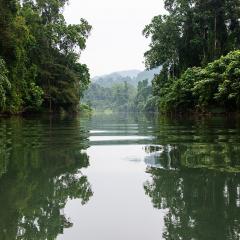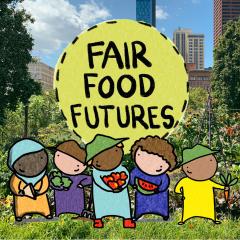Written by Professor Kristen Lyons and Dr Peter Walters
Carbon credits have sometimes been championed as enabling emitters to ‘offset’ their emissions through investment in a diversity of project types — rainforest conservation, plantation forestry, blue carbon — each of which promises to store carbon dioxide and other polluting greenhouse gases.
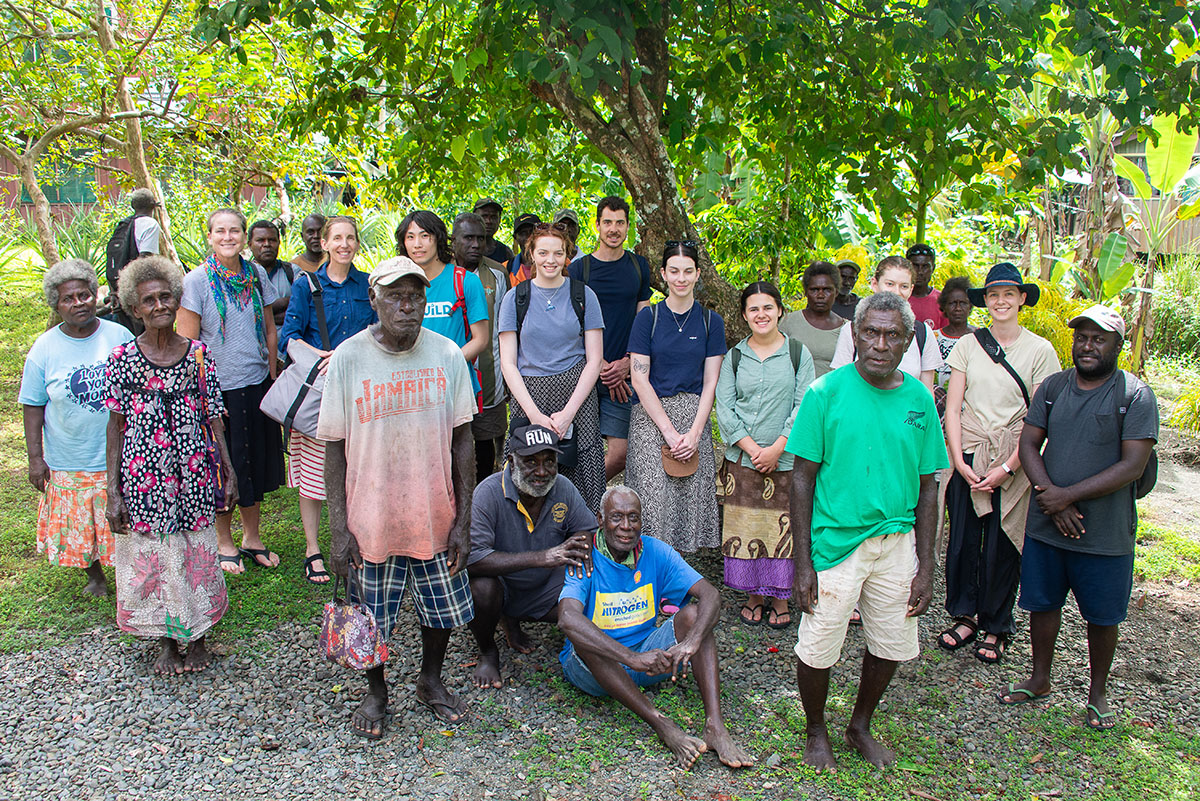
Carbon projects with integrity also align with The Paris Agreement in aiming to limit global warming well below 2°C above pre-industrial levels, and many national governments and industries are pinning decarbonisation targets to carbon credit initiatives. Given the United Nations General Secretary Antonio Guterres’ recent announcement that the era of global warming has been replaced by ‘global boiling’, responding to the challenge of climate change has never been more urgent.
Despite the hype, carbon credits have faced much criticism too. Some projects have been exposed for forcing Indigenous peoples from their homelands, meanwhile it has also been revealed that other projects are not delivering on their promises to reduce greenhouse gas pollution.
With this background, under what conditions might carbon credit projects provide socially and ecologically responsible solutions to the climate crisis, including by supporting and including local Indigenous communities in realising their visions for a sustainable future?
Reflecting on our recent visit to the Babatana Rainforest Conservation Project in Solomon Islands — along with a group of 12 undergraduate social science students from The University of Queensland [1]— we saw first-hand how a voluntary carbon project is delivering multiple benefits to Indigenous landowners and the environment. By centring conservation and sustainable livelihood outcomes, grounded in tribal decision-making processes and management protocols, the Babatana project brings a model of climate justice to life in real and tangible ways. It is also a lightning rod that has sparked a movement now growing across the Solomon Islands.
Solomon Islands: the frontline of climate impacts and responses
The Solomon Islands, like all other Pacific Island nations, has made only a small per capita contribution to global greenhouse gas emissions. Yet they are on the frontline of climate change impacts, with rising sea levels, increasing cyclones, tsunamis, and other extreme weather events, as well as salination of soils, destruction of cultural sites and so on, each threatening the way of life.
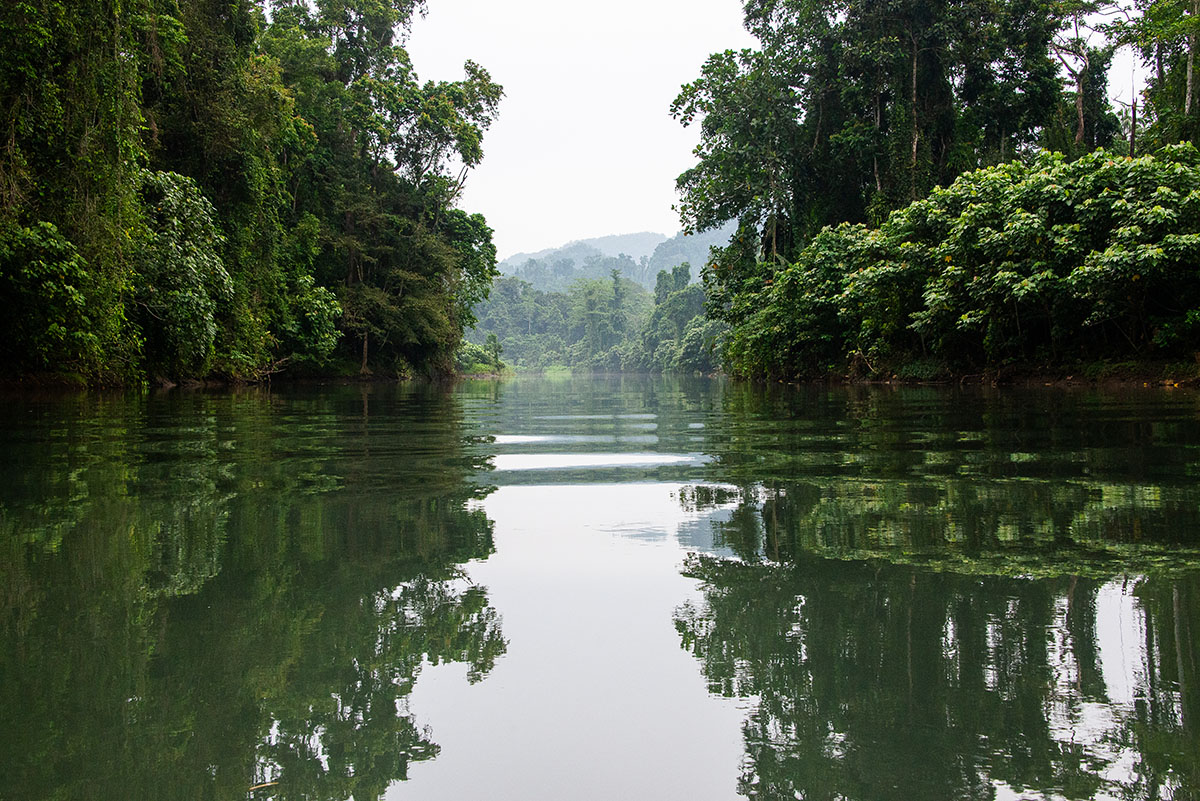
But importantly, the Solomon Islands is also a leader in carbon project innovation and implementation as a nature-based solution to the challenges they face.
In Choiseul Province, the Sirebe Tribal Association has taken a leadership role in implementing the countries’ first voluntary carbon project. As the first customary landowner group to generate income from the sale of carbon credits in Solomon Islands, the Babatana project provides a case study that can inform ethical and sustainable carbon project development elsewhere.
The Babatana Rainforest Conservation Project is part of the Nakau Programme, which works with Indigenous landowners to protect and restore forests and other ecosystems, and generate income through nature-based solutions. The project is a partnership between Nakau and local NGO, the Natural Resources Development Foundation (NRDF). Together, the two entities provide capacity building and technical support to ensure the project’s effective implementation, including compliance with the industry carbon Standard, Plan Vivo.
Sirebe’s tribal lands include the last untouched primary lowland and river rainforest in Choiseul Province. It is home to a rich diversity of plants and animals and contains many sites of cultural significance. More than 90% of the Sirebe Tribe relies directly on forests, rivers, streams and land for life and livelihoods. As one tribal member powerfully declared during a community meeting we attended:
“We only have one Sirebe."
Protection of Sirebe tribal lands from logging and other damaging land use practices is a key priority.
Collective agreement-making vital to success
The Sirebe Tribal Association has led a long-term community consultation process to build broad support for protecting their lands. The outcome of this process culminated in the registration of 856 hectares of tribal lands as a Protected Area in 2019. They joined the Babatana Rainforest Conservation Project that same year, and by 2021 had begun to generate income from the sale of carbon credits. It must be noted that the initial driver was the protection of their tribal lands; the generation of an income from carbon has provided an additional benefit that was only possible due to the positive conservation outcomes they realised by protecting their forests.
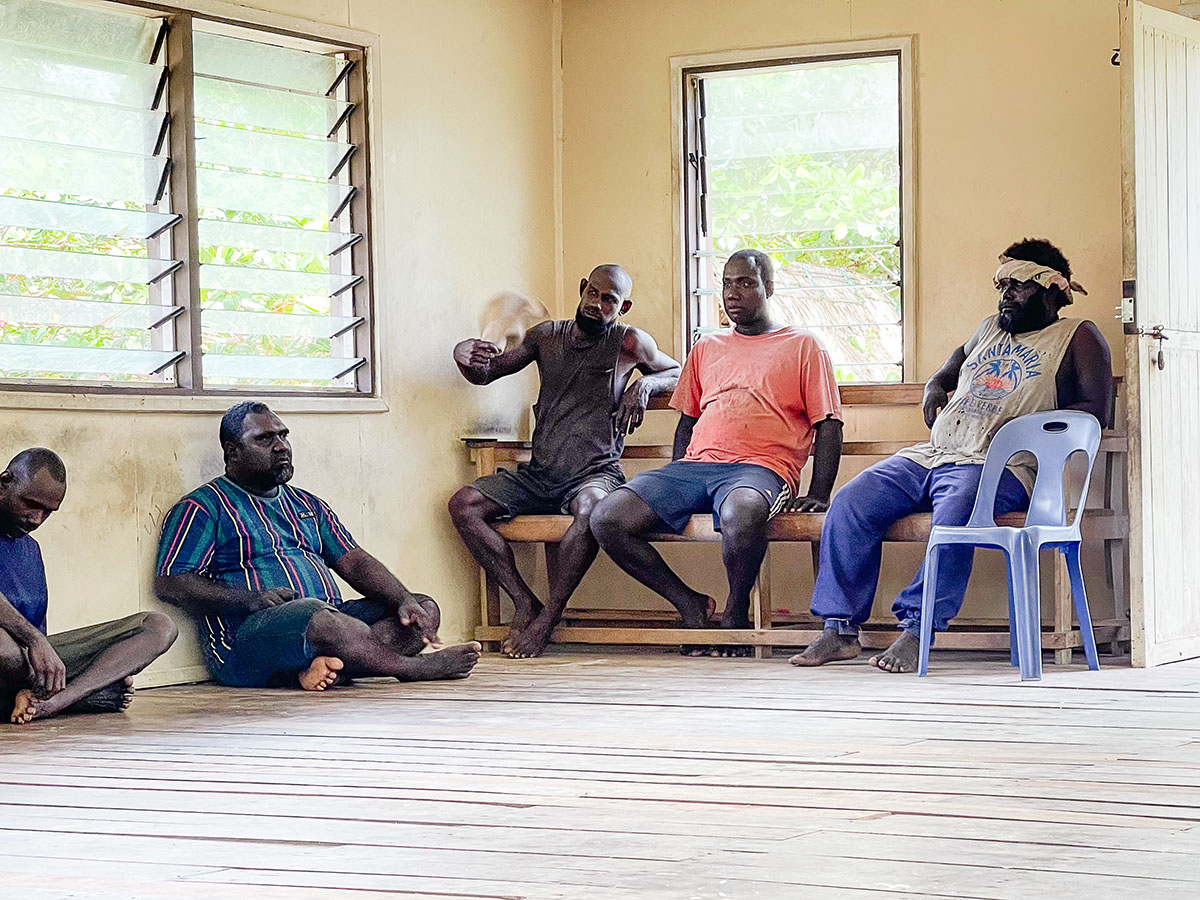
To achieve this positive outcome, the Sirebe Tribal Association’s consultation process included numerous community meetings to inform about the benefits of protecting tribal lands, and to foster a dialogue about the terms of any protected area agreement with the Solomon Islands Government. In explaining this rich and long-term process of agreement-making, one Tribal Association representative explained:
"It is only together we grow. To be successful we need to consult everyone."
Of significance, young people attended meetings, ensuring those with a key role in determining the long-term viability of the project were involved from the start.
Together, the Sirebe Tribal Association has achieved Protected Area status with a designated category of Resource Management area over their tribal lands. This continues to allow controlled access that supports sustainable food security, sustainable livelihoods and other development needs of its customary owners and dependent communities. A further marker of the Sirebe Tribal Association’s free prior and informed consent (FPIC) in relation to this project is they were also involved in the resolution of two disputes related to the boundary of their tribal lands. Working through the Lauru Land Conference of Tribal Communities – the provincial peak organisation for tribal groups – the Sirebe Tribal Association assisted in settling these disputes via the customary court. These outcomes were, in turn, recognised by the Ministry of Environment in support of the Sirebe Tribal Association’s Protected Area application.
More than a carbon project
Global carbon projects without integrity can enable heavy emitters to pass on their responsibilities to others. When this happens, communities involved in carbon projects may be caught up in the pressure of compliance with global carbon market rules and requirements, foregoing their rights and interests. This was not the case at the Babatana Rainforest Conservation Project.
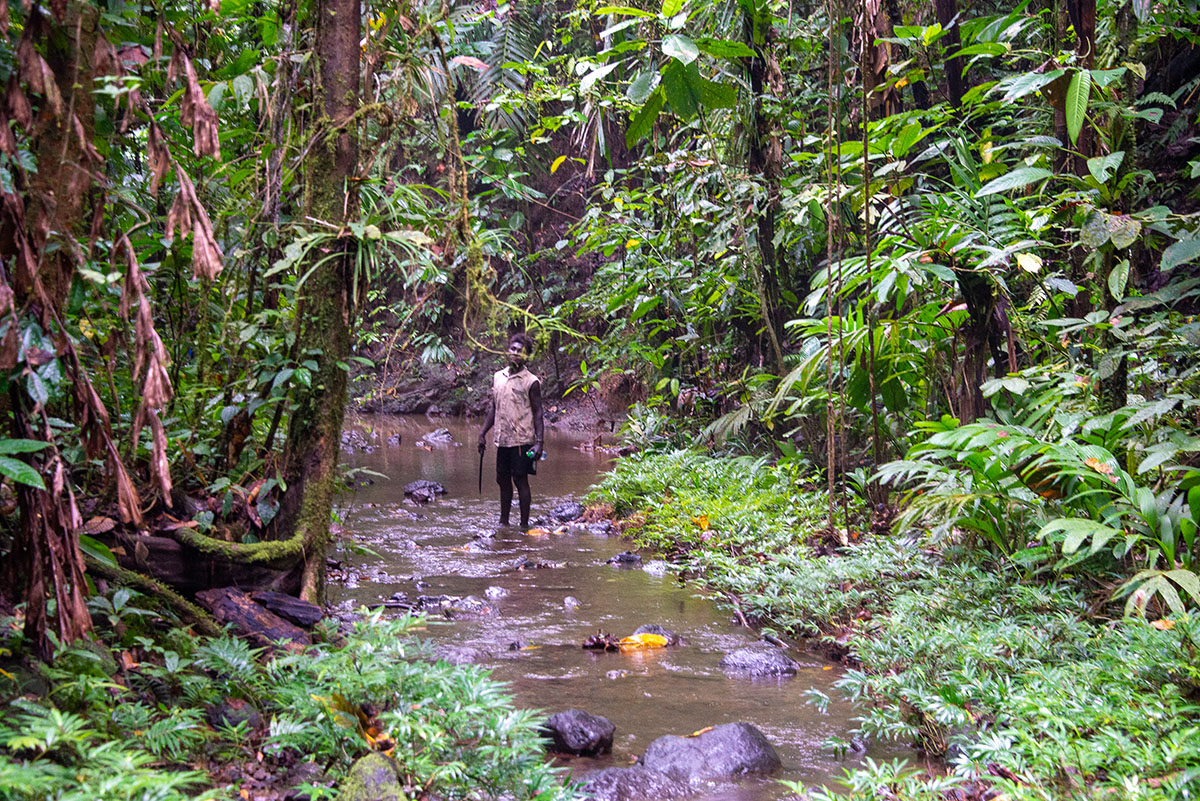
What is striking is how this project is about so much more than carbon credits – including activities that ensure direct and immediate benefits to diverse local communities. At its heart, the Babatana Rainforest Conservation Project centres the protection of rich biodiverse rainforests, and in so doing, the future of the Sirebe tribes’ way of life. Through its support for healthy water systems and diverse habitats, the project can directly support local sustainable livelihoods.
The income that has now started to be realised via the sale of carbon credits is being directed into a number of priority areas, including infrastructure, education and livelihood activities; all identified by the Sirebe Tribal Association themselves. The creation of business opportunities – including fishing and a mechanical workshop – has also ensured local work opportunities as well as beneficial services are being realised. Through the Women’s Savings Club, women are also directly benefiting through access to finance as well as training programs.
Members of the Sirebe Tribal Association have also now secured paid local employment as forest Rangers, directly tied to the success of the Babatana project. Young people are also volunteering with the Natural Resources Development Foundation. Of significance, these young people are now able to see themselves as having a future within their village through leading the ongoing conservation of their tribal lands.
A lightning rod for others
The Sirebe Tribal Association provides a model for local governance and decision making to guide sustainable livelihood development that is inspiring others. Nearby, the Padezaka, Vuri and Siporae Tribal Associations’ have also reached Protected Area status, as well as ensuring compliance with the pre-requisites for entry into the voluntary carbon market. Like Sirebe, these tribal associations are working closely with NRDF and Nakau in developing their project and management plans.
For these groups, their actions are not motivated by the promise of income from carbon. Rather, they are grounded in an understanding of their responsibilities to both future generations, and to the planet. Reflecting these values, one Padezaka Tribal member explained to us:
“The most important thing is preserving the forest for future generations. So that future generations can use the same forest we have today."
Meanwhile, a Siporae Tribal member explained:
“What makes us really happy is that we contribute to the world, to the challenge of climate change."
The values and practices of tribal groups who are leading Solomon Islands’ carbon credit industry shine a light into a climate just future. By centring Indigenous rights, sustainable livelihoods, as well as the rights and interests of future generations, the Sirebe Tribal Association – and those that are following behind them – have already begun to bring that future to life.
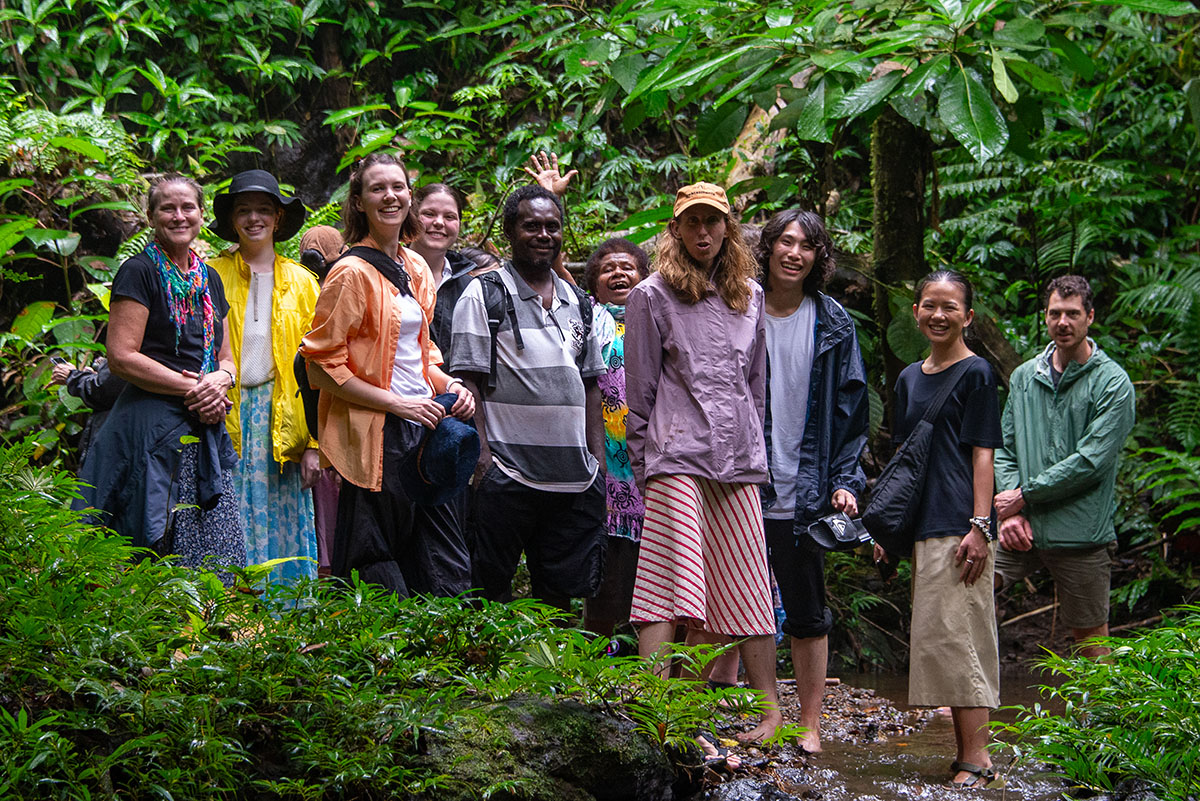
[1] Our group was financially supported by the Australian Department of Foreign Affairs and Trade’s New Colombo Plan (NCP), and the logistics for our site visit was assisted by the Natural Resources Development Foundation. We travelled with Rose and Gideon Bouro who provided cultural and language translation, and with additional teaching support from Dr Nicole Garofano. The student group included Yi Hung Chen (Justin), Zara Childs, Leah Clayton, Josie Cook, Erinn Davenport, Rachel Donovan, Amber Edser, Sarra Hodson, Alycia Kawitzki, Willowbie Kingston-Trotter, Trent Moses, Elizabeth Nguyen.

